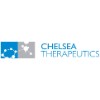
Stimulant Versus Nonstimulant Medication for Attention Deficit Hyperactivity Disorder in Children...
Attention Deficit Disorder With HyperactivityThis study will determine the effectiveness of stimulant and nonstimulant medication in treating the symptoms of attention deficit hyperactivity disorder (ADHD) in children and adolescents.

Social Skills Training and Standard Treatment Versus Standard Treatment of Children With Attention...
ADHDAttention Deficit Hyperactivity DisorderThe primary purpose of the trial is to examine the effect of the combination of social skills training, parental training and standard treatment versus standard treatment in ADHD patients. The secondary purpose is to examine differences in the effect of the treatment in relation to the different competences of attachment: secure attachment: unsecure dismissing, unsecure preoccupied or disorganized attachment and in the categories; emotional openness, balance of positivity / negativity to attachment figure/s, idealisation of attachment figure/s, dismissal and/or derogation of attachment, the ability of conflict resolution, disorganisation and coherence of the narrative description. The tertiary purpose of the trial is to examine differences in the effect of the treatment in relation to the degree of parents symptoms of ADHD.

Effects Of A Computerized Working Memory Training Program On Attention, Working Memory, And Academics,...
Attention Deficit Disorder With HyperactivityLearning DisordersOur primary aim is to determine whether a computerized working memory (WM) training program will help students with severe learning and attention problems, in terms of improving their WM. Additional aims are to determine whether the WM training will also result in improvements in the students' concentration and school work, and how long any beneficial effects will last (i.e., whether the students will continue to show improvements once the training program has stopped).

An Efficacy Study of Osmotic Release Oral System (OROS) Methylphenidate in Participants With Attention-Deficit/Hyperactivity...
Attention Deficit Disorder With HyperactivityThe purpose of this study is to evaluate the efficacy, tolerability and effects of Osmotic Release Oral System (OROS) methylphenidate hydrochloride (HCl) on learning skill changes in Korean participants with Attention-Deficit Hyperactivity Disorder (ADHD).

Study of Droxidopa Treatment in Adults With Attention Deficit Hyperactivity Disorder With Co-administration...
Attention Deficit Hyperactivity DisorderAttention Deficit Hyperactivity Disorder (ADHD) is a neurobiological disorder characterized by lifelong issues of inattention, distraction, organizational difficulties, forgetfulness, restlessness, talking out of turn, difficulty waiting and interrupting others. ADHD is the second most common neuropsychiatric disorder affecting 4.4% of the US adult population, or between 8-9 million individuals (Kessler et al., 2006). Droxidopa (L-dihydroxyphenylserine (L-DOPS)) is a synthetic catecholamine which is converted to norepinephrine (NE) via decarboxylation, resulting in increased levels of NE centrally in the CNS and peripherally. Co-treatment with carboxylase inhibitors, such as carbidopa, given with droxidopa, can increase the CNS levels of NE with greater crossing of the blood-brain barrier. Droxidopa has received orphan drug approval by the FDA for the treatment of symptomatic neurogenic orthostatic hypotension in individuals with primary autonomic failure. The half-life of droxidopa is approximately 2-3 hours, resulting in administration thee times daily. As adult ADHD is characterized as a disorder of decreased NE activity in the pre-frontal cortex, it is hypothesized that treating patients with droxidopa (in co-administration of carbidopa) will have a positive effect on adult ADHD.

Quetiapine and Concerta in the Treatment for ADHD and Aggressive Behavior.
Attention Deficit Disorder With HyperactivityThe primary purpose of this thirteen-week, open-label study is to test the hypothesis that quetiapine in combination with Oros methylphenidate will reduce aggressive symptoms in children and adolescents who have shown inadequate response to OROS methylphenidate alone.

Study of Medication Patch to Treat Children Ages 6-12 With ADHD
ADHDAttention Deficit Hyperactivity DisorderThe purpose of this study is to investigate the effectiveness of a medication skin patch called Methylphenidate Transdermal System (MTS). We will compare the MTS medicated patch to a placebo patch. We want to find out how well it treats ADHD during the early morning hours before a child leaves for school or summertime routines.

Long Term Safety and Tolerability Study of ABT-089 in Adults With Attention-Deficit/Hyperactivity...
Attention-Deficit/Hyperactivity DisorderThe objective of this study is to evaluate the long-term effects and tolerability of ABT-089 in adults with Attention-Deficit/Hyperactivity Disorder (ADHD).

The Safety and Efficacy of a Compound Natural Health Product in Children With Attention Deficit...
Attention Deficit Hyperactivity DisorderThe purpose of this study is to investigate the use of a natural health product, as compared to placebo (an inactive substance), in managing the symptoms of ADHD. The natural health product contains the nutrients zinc, magnesium, vitamin B6 and vitamin C. Each of these nutrients has some evidence to suggest that children with ADHD might be lacking them. As such, children with ADHD might benefit from supplementing their diets with these nutrients, especially ADHD children who have below average levels. This study will measure whether the severity of ADHD symptoms is greater in children with low levels of zinc, magnesium, and vitamin B6, and whether the severity of ADHD symptoms will decrease with supplementation of these nutrients. This study will also monitor for any adverse reactions or side effects from taking these nutrients in children. Although these natural health products are commercially available, the use of them as a supplement or placebo in this study has been approved for use in this study by the Natural Health Products Directorate of Health Canada.

Effect of Vyvanse on Sleep in Children Aged 6-12 Years With Attention Deficit Hyperactivity Disorder...
Attention Deficit Hyperactivity DisorderSleepThis study involves research to test how Vyvanse (study drug) affects sleep in 24 children aged 6 to 12 years who have ADHD. Vyvanse is approved by the FDA for the treatment ADHD of in children aged 6 to 12 years. The experimental part of this study is to determine how Vyvanse affects sleep.
